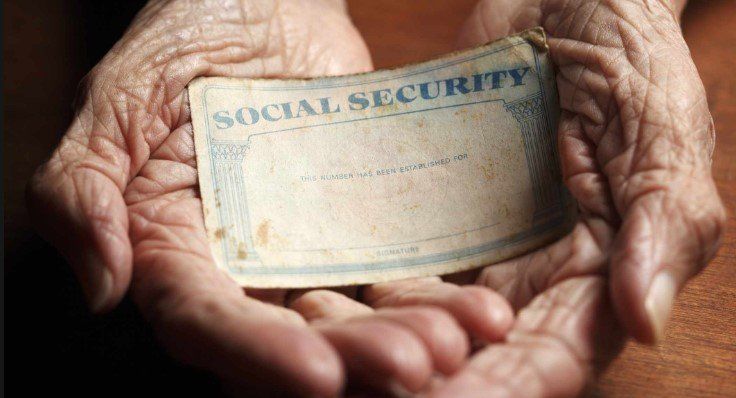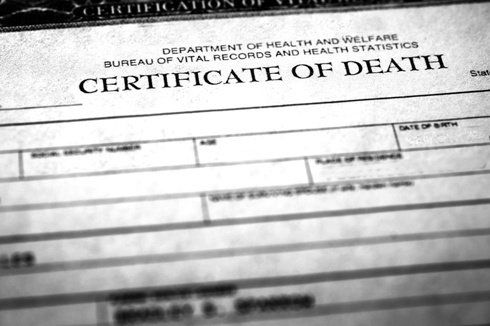How Social Security Can Help You After A Family Member Dies
How Social Security Can Help You After A Family Member Dies- Everything you need to know.

The first step is to get the Social Security number to the funeral director as they report the person’s death to Social Security.
Some of the deceased’s family members may be able to receive Social Security benefits if the deceased person worked long enough in jobs insured under Social Security to qualify for benefits.
Spouses, minor children, and disabled children may qualify for benefits after death.
Please read the following information carefully to learn what benefits may be available.
Social Security sadly pays a one-time payment of $255 to the surviving spouse IF they were living with the deceased. If living apart from the deceased and eligible for certain Social Security benefits on the deceased’s record, the surviving spouse may still be able to get this one-time payment.
If there’s no surviving spouse, a child who’s eligible for benefits on the deceased’s record in the month of death can get this payment.
Certain family members may be eligible to receive monthly benefits, including:
- A widow or widower age 60 or older (age 50 or older if disabled).
- A widow or widower of any age caring for the deceased’s child who is under age 16 or disabled.
- An unmarried child of the deceased who is either:
- Younger than age 18 (or up to age 19 if they’re a full-time student in an elementary or secondary school).
- Age 18 or older with a disability that began before age 22.
- A step-child, grandchild, step-grandchild, or adopted child under certain circumstances.
- Parents, age 62 or older, who were dependent on the deceased for at least half of their support.
- A surviving divorced spouse, under certain circumstances.
SOCIAL SECURITY PULLING MONEY OUT OF YOUR ACCOUNT AFTER A DEATH:
If the deceased was receiving Social Security benefits, you must return the benefit received for the month of death and any later months. This will usually be drafted out of the account a month or 2 after the death, when SS finally catches up with their own paperwork. For example, if the person dies in July, you must return the benefit paid in August. If paid by check, do not cash any checks received for the month the person dies or later. Return the checks to Social Security as soon as possible. Keep in mind that eligible family members may be able to receive death benefits for the month the beneficiary died. Contacting Social Security The most convenient way to do business with them from anywhere, on any device, is to visit www.ssa.gov.
There are several things you can do online: apply for benefits; get useful information; find publications; and get answers to frequently asked questions. Or, you can call toll-free at 1-800-772-1213 or at 1-800-325-0778 (TTY) if you’re deaf or hard of hearing. They can answer your call from 7 a.m. to 7 p.m., weekdays. You can also use the automated services via telephone, 24 hours a day.
The following information is direct from the Social Security website:
_____________________________________________________________________________
Social Security survivors benefits are paid to widows, widowers, and dependents of eligible workers. This benefit is particularly important for young families with children.
This page provides detailed information about survivors benefits and can help you understand what to expect from Social Security when you or a loved one dies.
The Basics:
family members may receive survivors benefits if you die. If you are working and paying into Social Security, some of those taxes you pay are for survivors benefits. Your spouse, children, and parents could be eligible for benefits based on your earnings.
You may receive survivors benefits when a family member dies. You and your family could be eligible for benefits based on the earnings of a worker who died. The deceased person must have worked long enough to qualify for benefits.
How to Apply:
You should notify us immediately when a person dies. However, you cannot report a death or apply for survivors benefits online.
In most cases, the funeral home will report the person’s death to us. You should give the funeral home the deceased person’s Social Security number if you want them to make the report.
If you need to report a death or apply for benefits, call 1-800-772-1213 (TTY 1-800-325-0778). You can speak to a Social Security representative between 8:00 a.m. – 7:00 p.m. Monday through Friday. You can find the phone number for your local office by using our Social Security Office Locator and looking under Social Security Office Information. The toll-free “Office” number is your local office.
If you are not getting benefits
If you are not getting benefits, you should apply for survivors benefits promptly because, in some cases, benefits may not be retroactive.
If you are getting benefits
If you are getting benefits on your spouse's or parent's record:
- You generally will not need to file an application for survivors benefits.
- We'll automatically change any monthly benefits you receive to survivors benefits after we receive the report of death.
- We may be able to pay the Special Lump-Sum Death Payment automatically.
If you are getting retirement or disability benefits on your own record:
- You will need to apply for the survivors benefits.
- We will check to see whether you can get a higher benefit as a widow or widower.
Documents you Need to Begin the Application Process:
Please select the benefit you will be applying for from the list below to see what information and documents you may need when you apply:
- Widows/Widowers or Surviving Divorced Spouse's Benefits.
- Child's Benefits.
- Mother's or Father's Benefits (You must have a child under age 16 or disabled in your care.)
- Lump-Sum Death Payment.
- Parent's Benefits (You must have been dependent on your child at the time of his or her death.)
If you don't have all the documents you need, don't delay applying for Social Security benefits.
In many cases, your local Social Security office can contact your state Bureau of Vital Statistics and verify your information online at no cost to you. If we can't verify your information online, we can still help you get the information you need.
Mailing Your Documents
If you mail any documents to us, you must include the Social Security number so that we can match them with the correct application. Do not write anything on the original documents. Please write the Social Security number on a separate sheet of paper and include it in the mailing envelope along with the documents.
For Same Sex Partners:
On June 26, 2015, the U.S. Supreme Court issued a decision in Obergefell v. Hodges, holding that same-sex couples have a constitutional right to marry in all states and have their marriage recognized by other states. This decision made it possible for more same-sex couples and their families to benefit from our programs.
Benefits for Same-Sex Couples
Your marital status is important in determining your entitlement to retirement, survivors, Medicare, and disability benefits. You or your spouse could be entitled to benefits, or a higher benefit amount, based on your marital relationship. Your children or stepchildren could also be entitled to benefits. For some surviving spouses, divorced spouses, and adults who developed a qualifying disability during childhood, benefits could end if they marry. Marriage may also affect your Supplemental Security Income (SSI) eligibility or payment amount.
In some cases, people who are in non-marital legal relationships like civil unions or domestic partnerships may also be entitled to benefits as a married person.
To get more information about benefits for same-sex couples read What Same-Sex Couples Need to Know.
Survivors Benefits for Same-Sex Partners
More surviving same-sex partners may now qualify for Social Security survivors benefits. If you were in a same-sex relationship with a partner who passed away, you may qualify for Social Security survivors benefits based on your partner’s record.
You may qualify for survivors benefits if either of the following are true:
- You would have been married at the time of your partner’s death if unconstitutional state laws hadn’t prevented you from doing so.
- You would have been married longer if not for unconstitutional state laws that prevented you from marrying earlier.
If you think you may qualify based on the categories above, please contact us to apply. Even if you were previously denied survivors benefits because you did not meet the marriage requirement due to unconstitutional laws, you can ask us to reopen, or take another look at, your claim. If you were previously denied and we find that you qualify for benefits, you may be due retroactive benefits. For more information, visit Survivors Benefits for Same-Sex Partners and Spouses.
Inform Us of Changes
If you already receive Social Security benefits or SSI, you must tell us if you get married, enter a non-marital legal relationship, or divorce. These changes could affect your entitlement to Social Security benefits or your SSI eligibility or payment amount.
Whenever you change your name, be sure to report the change to us. Otherwise, your earnings may not be recorded properly, and you may not receive all the benefits you are due. We will provide you with an updated Social Security card. For more information read Your Social Security Number and Card.
Also, if you are paying a higher Medicare premium for Part B and Part D, you could be eligible for a new initial determination based on a life-changing event of marriage. If you amended your tax return and changed the income we used to determine your premium, let us know. We call the additional premium amount the “income-related monthly adjustment amount” (IRMAA). To report these changes in your income, use the Medicare Income-Related Monthly Adjustment Amount – Life-Changing Event form.
Additional Information
If you and your same-sex partner have a child, we can place both parents’ names on your child’s Social Security number record. You will need to provide proof that you are the legal parents of the child. For more information read Social Security Numbers for Children. When you are ready to apply for an SSN for your child, contact us.
If you have a personal my Social Security account, you can get an estimate of your personal retirement benefits and see the effects of different retirement age scenarios. If you don’t have a personal my Social Security account, create one at www.ssa.gov/myaccount.
How to Apply
When you are ready to apply for benefits, you can:
- Apply online (retirement, spouse’s, Medicare, disability, SSI).
Apply by phone by calling 1-800-772-1213 (TTY 1-800-325-0778) or contacting your local Social Security office.











